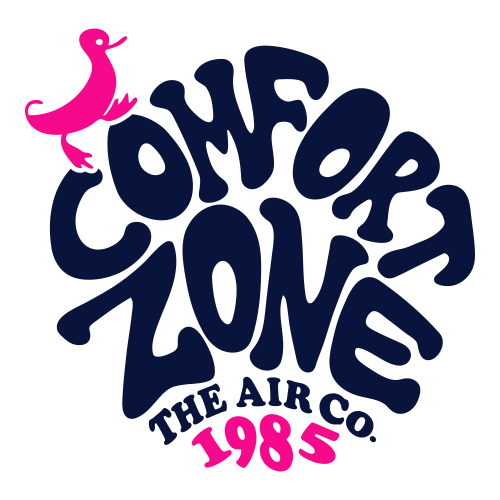
If you’re questioning whether your Cape Coral residence has poor indoor air quality (IAQ), it probably does.
We are indoors a lot. In fact, we’re inside up to 90% of the time, according to the U.S. Environmental Protection Agency. And the air inside homes could be 2–5 times more polluted than outdoors, which may create long-term health problems.
Most Common Causes of Poor IAQ
We’ve compiled a list of the most common origins of poor IAQ, the issues they cause and how you can fix these indoor air pollutants. If you’re concerned about the air inside your residence, we suggest consulting with a professional like Comfort Zone, LLC about which solutions are best for your home.
Volatile Organic Compounds
Volatile organic compounds, or VOCs, are chemicals released by common household things.
They’re found in paint and stains in addition to:
- Furniture
- Carpet
- Building materials
- Cleaning products
- Cosmetics
- Air fresheners
- Candles
When these chemicals accumulate inside, they can irritate your eyes, nose and throat. They may also result in headaches and nausea. Regardless of whether your residence is in a rural or industrial location, an EPA study found indoor levels of these pollutants can be 2–5 times worse than the air outdoors.
Always follow the manufacturer’s guidelines when applying paint or spraying cleaning products. Cracking a window can help chemicals disappear faster.
Air purification systems can also better your air. This system partners with your heating and cooling unit to clean indoor air. When looking for a model, ensure it’s specifically designed to wipe out VOCs.
Dust and Pet Dander
Dust and pet dander can aggravate health problems like asthma and allergies, especially when it continuously gets recirculated by your home’s comfort system. While you can vacuum more routinely and install an improved air filter, an air filtration system may be a better fit.
This equipment hooks to your HVAC equipment to provide strong filtration. Some types have hospital-level filtration for eliminating particles and bioaerosols.
Lingering Odors
Modern residences are closely sealed to boost energy efficiency. While this is good for your utility expenses, it’s not very good for your IAQ.
Stuffy odors can hang around for a greater amount of time since your home is pulling in reduced fresh air. As keeping your windows open all the time isn’t a possibility, here are two ways you can make your indoor air smell fresher.
An air purification system is put in your ductwork to eliminate odors before they get released again. Look for one with a carbon filter and the ability to wipe out damaging VOCs. These units can also help keep your household healthy by eliminating most bacteria and normal allergy triggers like pollen and mold spores.
A ventilation system removes stale indoor air and exchanges it with crisp outdoor air. There are two kinds of equipment (heat recovery and energy recovery), so check with our professionals for more information on which solution is right for your residence.
Unsteady Humidity
It’s essential your home’s humidity remains even. Air that has too much moisture can cause mold, while dry air can create respiratory issues.
Our techs suggest 40–50% for the best comfort. To keep yours steady, consider getting a whole-home humidifier or whole-home dehumidifier with your HVAC equipment.
Instead of having to lug a humidifier from room to room, this equipment delivers balanced humidity throughout your house.
Carbon Monoxide
Carbon monoxide is colorless gas you can’t smell. It occurs when there’s insufficient combustion in fuel-burning equipment, like gas heating systems, water heaters or fireplaces.
It presents a severe health risk. In small levels, it can cause flu-like ailments like headaches and nausea. It can be deadly in heavy concentrations.
We recommend regular furnace maintenance to make sure your equipment is operating properly. This work allows our techs to discover troubles before they start, including malfunctions that can create carbon monoxide leaks.
The best approach to keep your home free of carbon monoxide is to put in detectors. These alarms need to be on all floors close to bedrooms and living spaces.
Better Your Home’s Air Quality with the Comfort Zone, LLC Specialists
Informed that your home has inferior air quality but not sure how to make it better? Or unsure which product is a good fit for you? Give our friendly HVAC pros a call at 239-214-0411 or contact us online now. With free estimates and expert support, we’ll help you find the right option for your family and budget.
